Self-checkouts in retail make it easier for many people to grab their purchases and go, and they're becoming more popular in the U.S. and abroad. Criminal defense attorney and TikTok user Carrie Jernigan (@carriejernigan1) says that using self-checkouts can be risky due to the possibility of being falsely arrested for shoplifting.
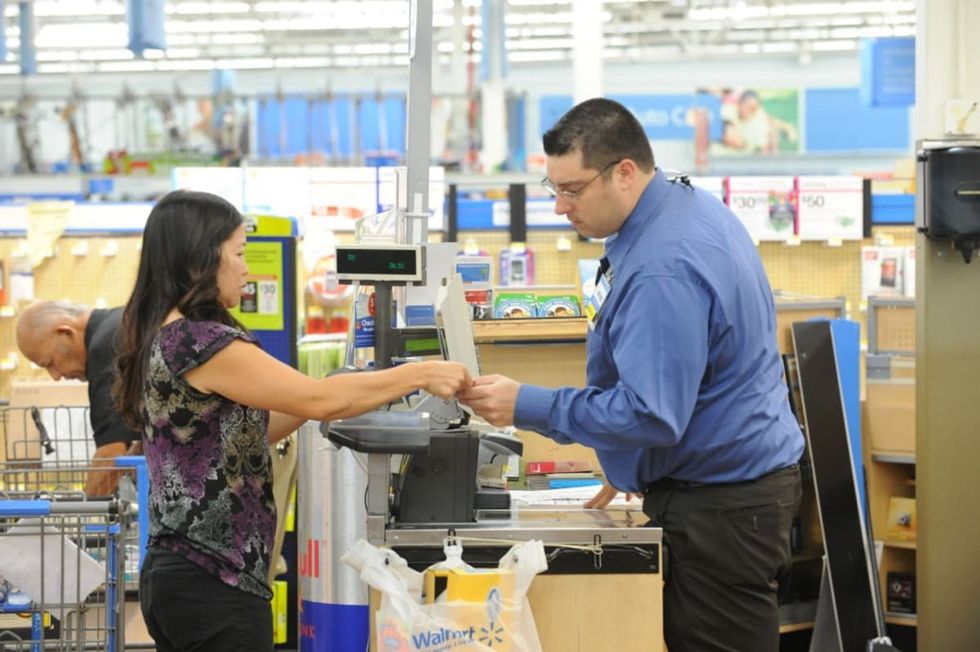
In a clip uploaded on TikTok, Jernigan explains that three types of people get into trouble while in self-checkout mode. She categorizes by saying that the first group consists of professional shoplifters. The second group, however, is guilty of what she calls “theft by mistake.” According to Jernigan, this is where innocent people can get into trouble. The third group, according to her, refers to the people who did not take anything at all.
She also states that since people in the first category have become extremely competent at stealing via self-checkout, their crimes are almost impossible to identify. As a result, asset protection at big box stores is now less sympathetic to people who did not intend to steal. It has begun targeting consumers who legitimately purchased an item when the business eventually realizes they are short on inventory. The lawyer adds, "They have lost all sympathy, and they are just taking a ‘Tell it to the judge’ approach."
As the clip progresses, Jernigan discusses a situation where customers unintentionally miss scanning an item while checking out at a store. This can lead to charges later on, even if the customer didn't mean to steal. She states how big-box businesses, like supermarkets or department stores, might not invest the time and resources to differentiate between accidental and intentional theft.
Explaining the full process of how these big businesses catch hold of the so-called thief, she said, "So, they will begin watching hours of video to see the last person who checked out with the Mario Lego set because they're two short. And, for some reason, they pinpoint that they think you did it." She further adds, "And because of who these big box stores are, they usually have to present very little evidence to get an affidavit for warrant signed, the charges that could land you up to a year in jail get filed, and then you are fighting for your life trying to determine what day you were at Walmart, what all you bought."
The end product of such harassment is time-consuming court appearances accompanied by pricey lawsuits—which, according to Jernigan, isn't worth the risk. TikTok users responded to her video by sharing their horror stories of using the self-checkout counter. "Took me 7 months and cost me 6,000 to clear my name after I was falsely accused and the evidence should have exonerated me immediately," wrote @karengilesalabamabeaches. @beckoreily added: "My mom accidentally left a tiny $3 lemon oil in her cart after buying $300 in groceries. She was charged with theft and had to do community service."
@carriejernigan1 Reply to @afamily20202 I have no idea why it cut off





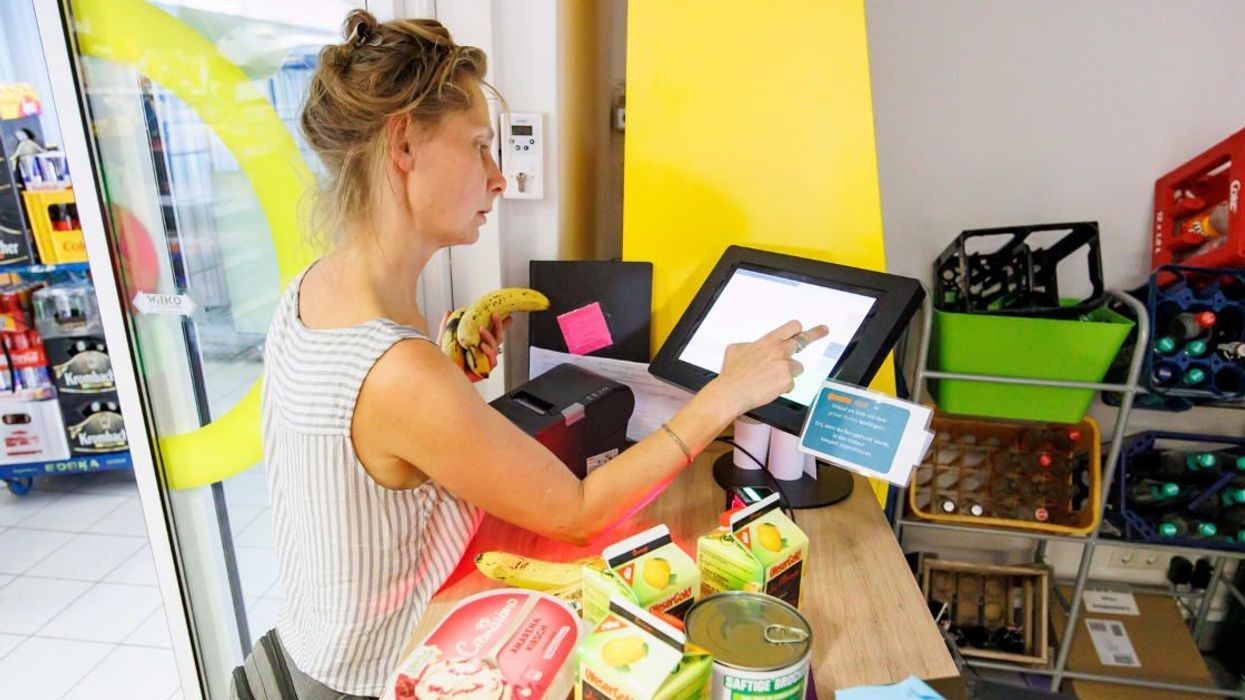











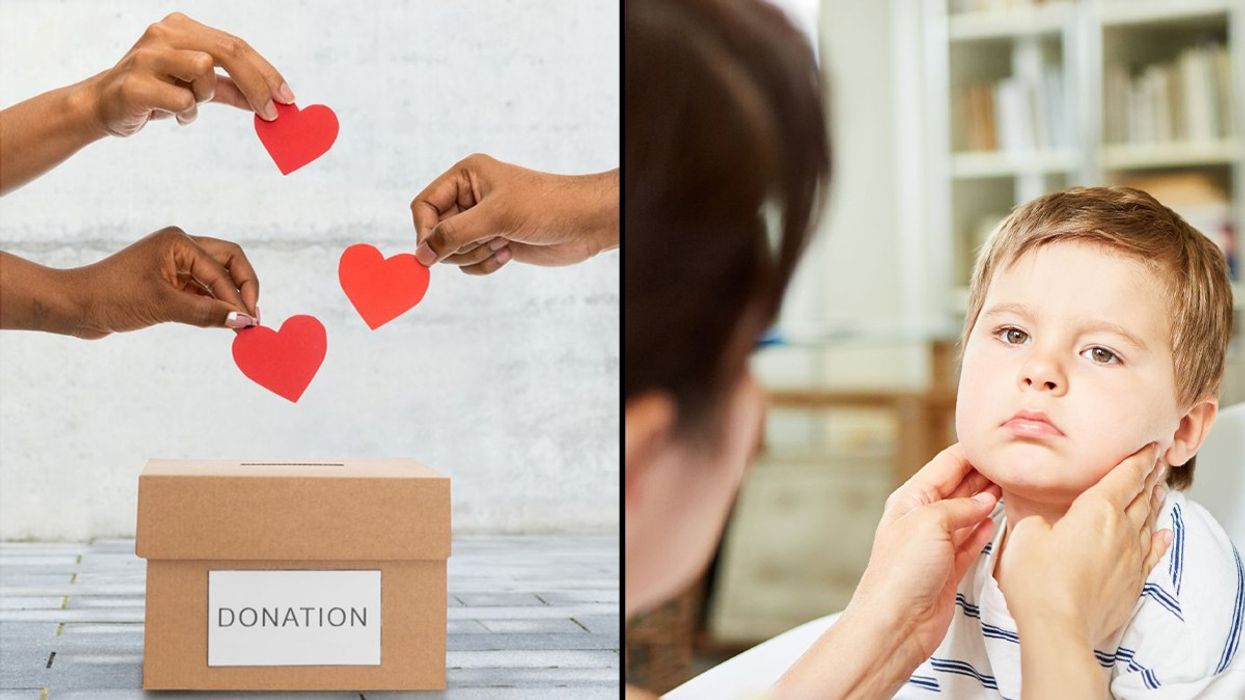
 A symbol for organ donation.Image via
A symbol for organ donation.Image via 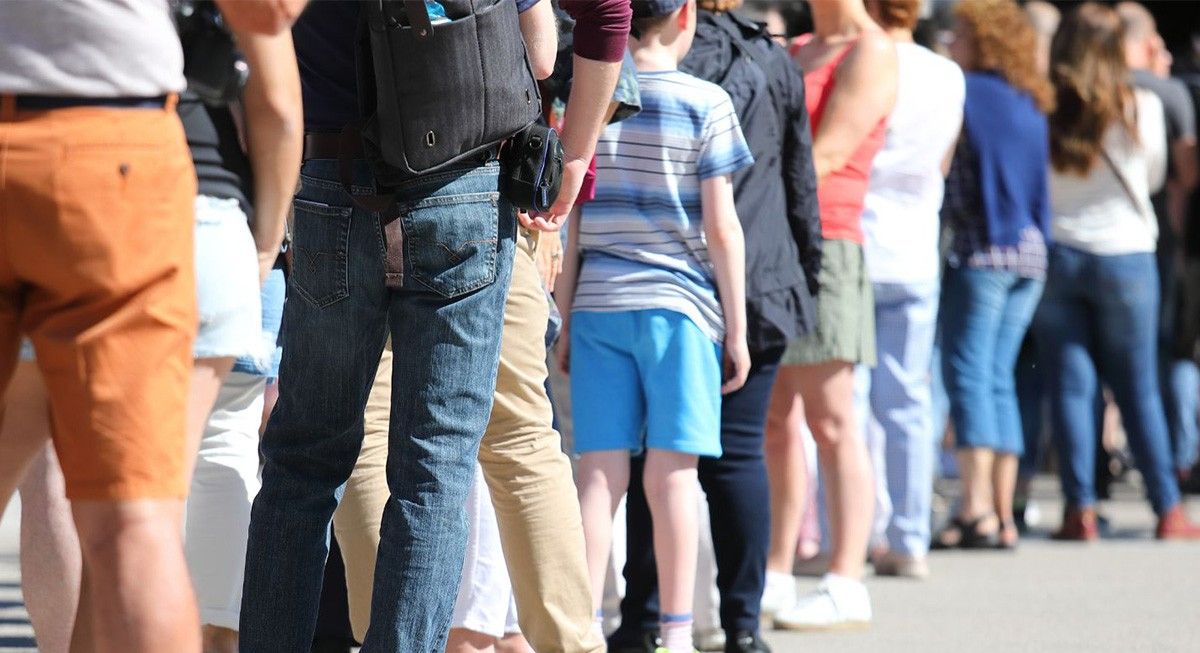 A line of people.Image via
A line of people.Image via  "You get a second chance."
"You get a second chance." 


 36 is the magic number.
36 is the magic number. According to one respondendant things "feel more in place".
According to one respondendant things "feel more in place". 
 Some plastic containers.Representational Image Source: Pexels I Photo by Nataliya Vaitkevich
Some plastic containers.Representational Image Source: Pexels I Photo by Nataliya Vaitkevich Man with a plastic container.Representative Image Source: Pexels | Kampus Production
Man with a plastic container.Representative Image Source: Pexels | Kampus Production
 Canva
Canva It's easy to let little things go undone. Canva
It's easy to let little things go undone. Canva
 Teens are waiting longer than at any point in the survey’s history. Canva
Teens are waiting longer than at any point in the survey’s history. Canva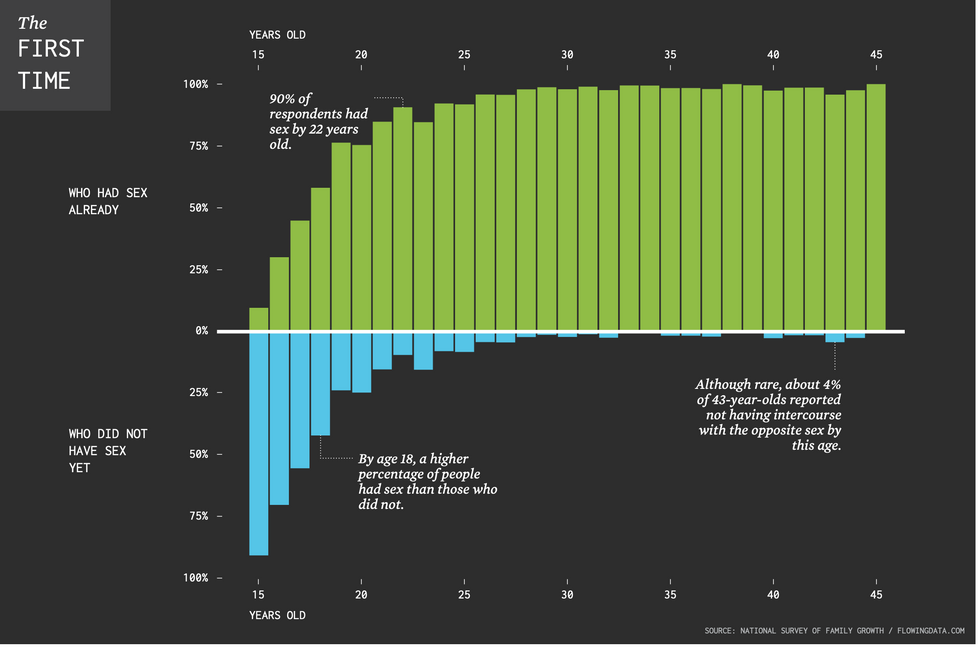 Chart on the age of a person’s first time having sex.National Survey of Family Growth/flowing data.com | Chart on the age of a person’s first time having sex.
Chart on the age of a person’s first time having sex.National Survey of Family Growth/flowing data.com | Chart on the age of a person’s first time having sex.
 Kids know the good adults from the bad.
Kids know the good adults from the bad.